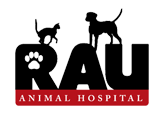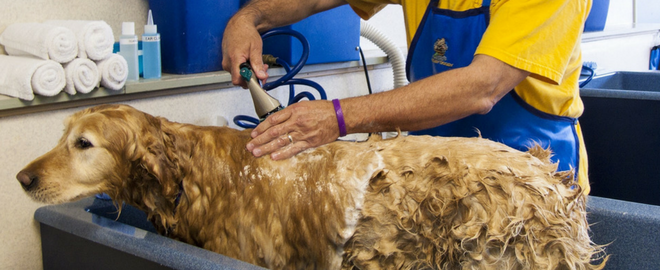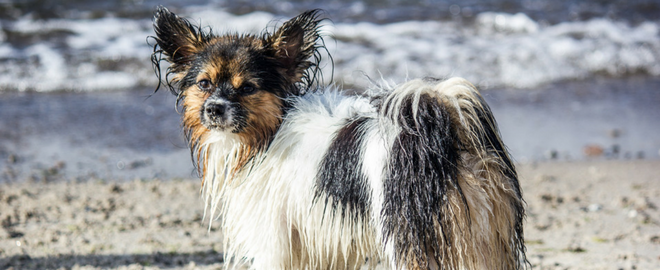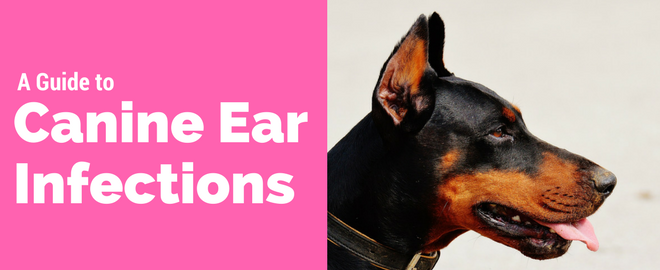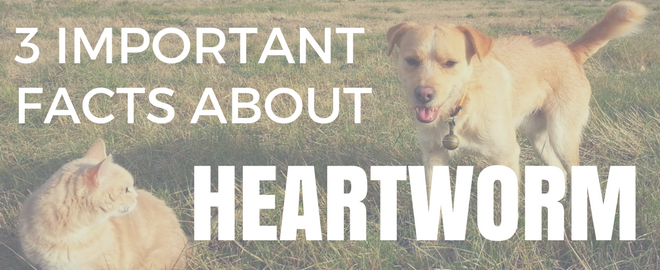Spring is Here: When Should My Dog Visit the Groomer?
All dogs usually grow thicker coats during the colder months of winter, including our short-haired pups like Chihuahuas, Boxers and even Dobermans! While pet owners may not notice the difference during winter months, they may start to notice now that spring has sprung. This is due to increased shedding or as groomers call it, “blowing their coat.” Below are some tell tale signs it may be time to see your groomer.
Read More
Pool and Beach Safety Tips for Pets: Part I
Summer’s just around the corner! Is your pet eager to get in the water? Be sure to read these safety tips before diving in at the beach or pool with your furry friends.
Never leave pets unattended.
All open bodies of water, including pools, oceans, lakes, rivers, ponds and even hot tubs can pose a threat to your pet if left unsupervised. Remember that pets are like small children and need to be monitored at all times. No pet should be allowed near the pool without adult supervision.
Read More
Bad Breath: The Silent Disease
Does your fido or fluffy have bad breath? That offensive odor could signify serious health risks for you beloved pet. To help keep you aware of potential health issues, we've compiled a list of dental and oral complications to look out for.
Here are the top 10 things you need to know:
-
Periodontal disease is the #1 diagnosed problem in dogs and cats. By age 3, 85% of dogs & cats are affected with some level of dental disease.
Read More
A Pet's Guide to Weight Loss
Obesity is an accumulation of excessive energy stored by adipose (fatty) tissue sufficient enough to contribute to disease. It is the most common form of malnutrition in our companion animals and it is growing in frequency due to an increasingly sedentary lifestyle coupled with highly-palatable, energy-dense food sources.
Obesity can significantly increase the risk of various diseases and can negatively impact both the quality of life as well as the life span of our pets.
Conditions associated with obesity include:
Read More
A Guide to Canine Ear Infections
Ear infections are one of the most common health problems dogs face. Here's what you should know:
What is an ear infection?
Infection of the outer ear, or otitis externa, indicates chronic inflammation of the external ear canal. This type of infection is often caused by bacteria or yeast. Infection of the middle or inner ear can also occur.
Read More
5 Advantages for Kids Who Grow Up With Dogs
Every child at some point begs their parents for a puppy. As a parent, we can’t help but think of all of the added chores and financial obligations that come with owning a pet. But did you know it can actually benefit the health and development of your kids? Here are a few very important reasons why you should consider owning a dog.
Read More
3 Important Facts About Heartworm
April is National Heartworm Awareness Month! Are your pets protected? Here’s what you need to know.
Heartworms are transmitted by mosquitos.
Heartworms are long, spaghetti-like parasites that live in the heart or pulmonary arteries. These worms cause disease by clogging the heart and major blood vessels, resulting in reduced blood supply to other organs, such as the liver, kidney and lungs.
Read More
First Aid for Pets: Preparing a Kit
Are you prepared for a pet emergency? Just like humans, animals can experience several kinds of medical crises, like allergic reactions, bites, wounds, heat stroke and poisoning. The most important thing you can do in these types of situations is seek immediate veterinary care.
First aid measures should never replace professional medical attention; however, keeping emergency supplies in your home or car may help your pet in a critical situation before you can get to a vet.
When preparing a first aid kit for your pet, consider including these items:
Read More
